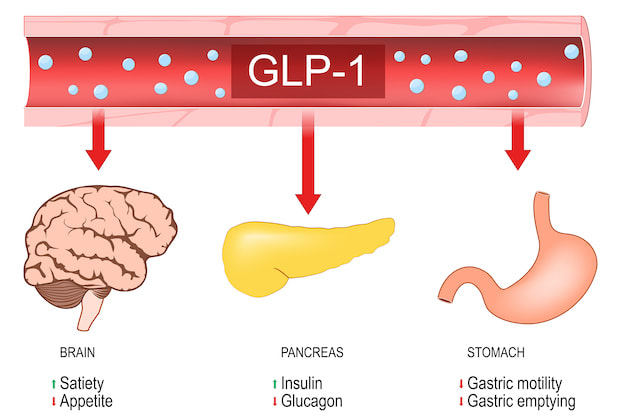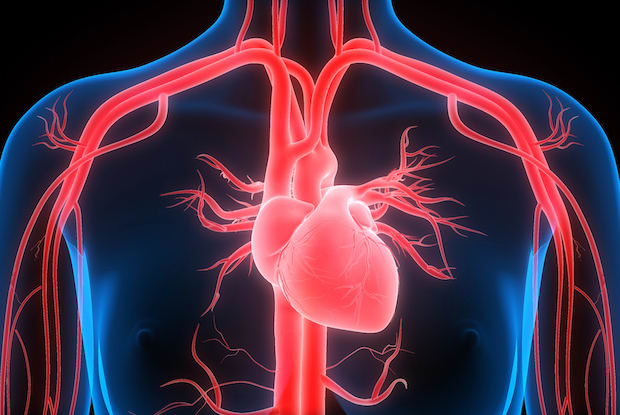What Are the Benefits of GLP-1 for Weight Loss and Long-Term Health?
What Are the Benefits of GLP-1 for Weight Loss and Long-Term Health?
Table of Contents
I. Understanding GLP-1 and Its Role in the Body
II. Benefits of GLP-1 for Weight Loss
III. Long-Term Health Benefits of GLP-1 Therapies
IV. Considerations and Lifestyle Integration
V. Find the Benefits with ScriptsMD
Glucagon-like peptide-1 (GLP-1) receptor agonists are a newer class of medications that aid in weight loss and overall health improvement. 1 They were first used to treat type 2 diabetes, but are now known for helping people lose weight by acting like a natural hormone.
This hormone helps control appetite and blood sugar levels. As more people face health issues related to obesity, it's essential to understand how these treatments work and what they can do. GLP-1 medications are not a quick fix, but they can be part of a larger plan that includes changes in diet and exercise.
Many doctors now consider them a strong option for patients who need help managing their weight and reducing health risks linked to obesity. As research continues, we learn more about how these medications can improve long-term health outcomes.
Quick Takeaways
- GLP-1 medications mimic a natural hormone to regulate appetite and blood sugar
- They are effective in promoting significant weight loss in individuals with obesity.
- Beyond weight loss, GLP-1 drugs also offer benefits for cardiovascular and metabolic health.
- Potential side effects include gastrointestinal issues and, in rare cases, pancreatitis.
- Lifestyle changes enhance the effectiveness of GLP-1 treatments
- Consultation with healthcare providers is essential before starting GLP-1 therapy
Understanding GLP-1 and Its Role in the Body
GLP-1 Hormone Function
GLP-1 is a hormone released in the gut when you eat. It helps control blood sugar by boosting insulin and limiting the release of glucagon, a hormone that raises blood sugar. This allows the body to manage glucose more effectively.
GLP-1 also slows the rate at which food leaves the stomach. This makes people feel full longer and helps reduce the amount of food they eat. Together, these effects support healthy blood sugar levels and weight loss.
Mechanism of GLP-1 Medications
GLP-1 receptor agonists function by mimicking a natural hormone that regulates appetite and blood sugar levels.
- They increase insulin only when blood sugar levels are high, helping to avoid drops.
- They slow digestion, which keeps you full longer and supports weight loss.
Together, these effects help people manage type 2 diabetes and reduce hunger. This dual action makes GLP-1 medications a powerful tool for long-term weight and health goals.

Approved GLP-1 Medications
Several GLP-1 receptor agonists are now approved, including popular options like Ozempic 2, Wegovy, Saxenda, and Trulicity. These drugs mimic natural hormones to improve blood sugar control and encourage weight loss.
While they differ in how often they're taken and what conditions they treat, they all help regulate appetite and manage diabetes. Many patients have seen significant weight and overall health improvements after starting these medications under a doctor’s supervision.
Benefits of GLP-1 for Weight Loss
Efficacy in Weight Reduction
Studies have shown that GLP-1 receptor agonists can help individuals lose significant weight. In one major trial, people who took semaglutide lost an average of 15% of their body weight in just over a year. 3
- Weight loss is steady and often long-lasting
- Helps reduce cravings and overeating
- Can lead to lower BMI and waist size
- Effective even for people who’ve struggled with weight loss before
This level of success is higher than what many other treatments offer. For people with obesity, GLP-1 medications may finally provide a reliable path to better health and lasting weight control.
Additional Health Improvements
GLP-1 therapies aid in weight loss and enhance other key health indicators. Many people who take these medications notice better control of their blood pressure and improved cholesterol levels. Insulin sensitivity can also increase, helping the body manage sugar more effectively.
Together, these changes support better overall health and reduce the risk of serious problems, such as heart disease. For individuals with obesity or type 2 diabetes, these added benefits make GLP-1 treatments a valuable long-term option for improving quality of life.
Long-Term Health Benefits of GLP-1 Therapies
Cardiovascular Protection
GLP-1 receptor agonists are now recognized for their role in heart health. For people with type 2 diabetes or existing heart conditions, these medications can significantly reduce the risk of heart attacks and strokes.
- They improve how the body handles blood sugar.
- They encourage weight loss, which lowers strain on the heart.
- They may directly improve the function of blood vessels and the heart.
Together, these benefits have a powerful impact on cardiovascular health. GLP-1 treatments offer more than weight control—they may be part of a larger plan to prevent serious heart issues and improve long-term outcomes.

Potential in Other Chronic Conditions
GLP-1 medications are being studied for their effects beyond weight and blood sugar control. Early research shows they may help reduce the risk of certain cancers, protect kidney function, and even support brain health.
Scientists are particularly interested in how these medications might slow the progression of kidney disease or improve memory and cognitive function. While further studies are needed, the results to date are promising. These findings could lead to new approaches for utilizing GLP-1 therapies to treat a broader range of chronic health issues.
Considerations and Lifestyle Integration
Side Effects and Risks
GLP-1 medications are usually safe for most people, but can still cause side effects. Common side effects include mild nausea, upset stomach, and diarrhea, particularly during the first few weeks of use. These symptoms often improve as your body adjusts to the changes.
In rare cases, more serious side effects like pancreatitis have been reported. That’s why checking in with your healthcare provider regularly is essential. They can help manage side effects and ensure the medication works safely and effectively.
Importance of Lifestyle Modifications
Using GLP-1 medications is most effective when combined with healthy habits. Consuming nutritious meals, staying physically active, and establishing better routines all support long-term weight management.
Doctors often suggest pairing the medication with help from a nutritionist or weight loss coach. These added tools can keep people motivated and on track. When used together, lifestyle changes and GLP-1 therapy enhance results and help individuals maintain their health for longer.
Find the Benefits with ScriptsMD
GLP-1 receptor agonists have revolutionized the treatment of obesity and related health conditions. These medications lead to significant weight loss and help improve key health markers, such as blood sugar and cholesterol levels. For many patients, this means better health and fewer complications. As research advances, so does the list of potential benefits—from improved heart health to enhanced kidney function.
For more support navigating your insurance benefits for weight loss treatments, contact ScriptsMD today.
References
- Logan Collins & Ryan A. Costello Glucagon-Like Peptide-1 Receptor Agonists
- Ozempic What will your Ozempic era look like?
- Wissam Ghusn, Alan De la Rosa, Daniel Sacoto, et al. Weight Loss Outcomes Associated With Semaglutide Treatment for Patients With Overweight or Obesity
